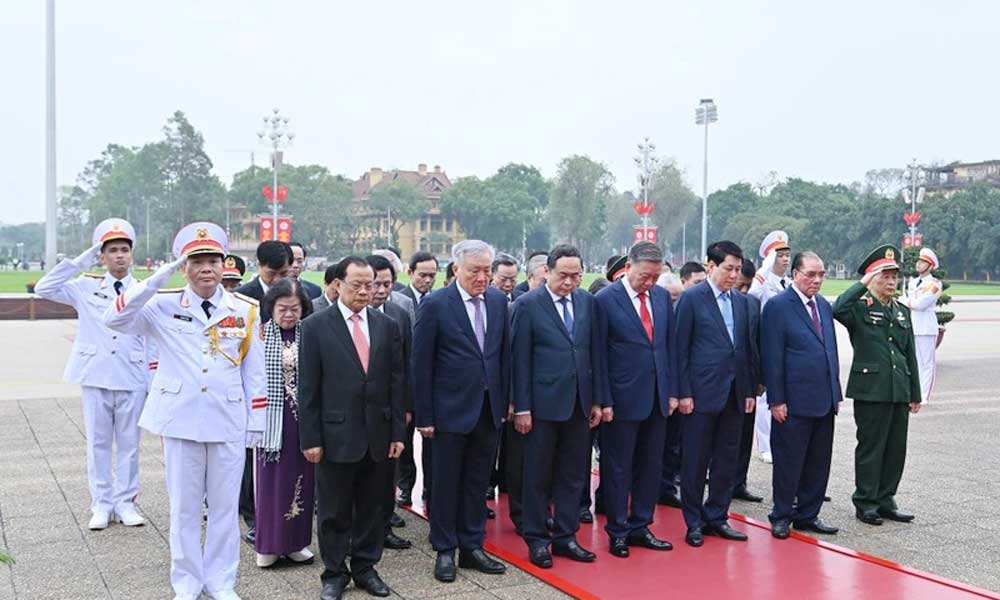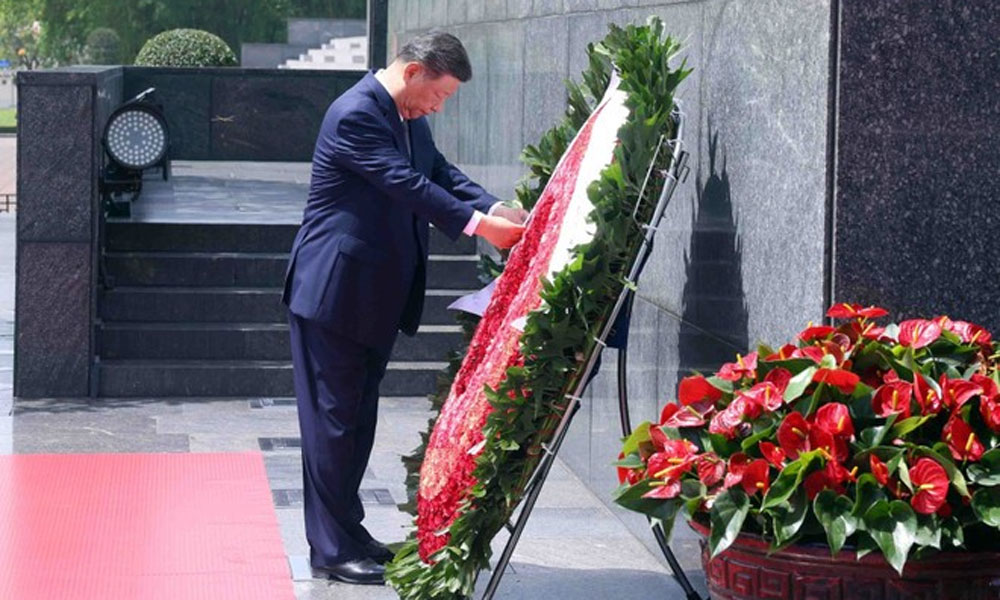Ho Chi Minh: A symbol of national liberation and global revolutionary legacy
President Ho Chi Minh was not only a pivotal figure in shaping Vietnam’s modern history but also a powerful source of inspiration for national liberation movements across the globe, according to Garis Djoumez, a historian specialising in international relations and biographical studies.
In an interview with the Vietnam News Agency (VNA) correspondent in Belgium, Djoumez noted that one of President Ho Chi Minh’s most profound contributions was his ability to break what modern psychology later termed "learned helplessness", a psychological condition describing how oppressed individuals or communities come to believe they are powerless in the face of systemic domination.
 |
|
President Ho Chi Minh. |
Ho Chi Minh recognised that Asian peoples, often dismissed as weak, had every right and capacity to rise and fight for their freedom like any other. This realisation helped deconstruct the colonial myth of inferiority and paved the way for a globally resonant liberation movement.
Djoumez further emphasised that Vietnam’s 1954 victory at Dien Bien Phu was a triumph for the Vietnamese people, and a galvanizing moment for colonised nations worldwide fighting for independence from imperial powers.
Another distinguishing feature of Ho Chi Minh’s legacy, according to Djoumez, was his pragmatic approach to communism. While many contemporaneous communist leaders viewed the ideology as an ultimate end, Ho Chi Minh regarded it as a means to a greater goal: national liberation.
He united the people not through abstract dogma, but through a deep and unwavering patriotism, laying the foundation for a cohesive and enduring revolutionary movement.
That legacy, Djoumez said, continues to shape Vietnam’s modern diplomacy, epitomised by what is now called “bamboo diplomacy”: flexible yet resilient, adapting to global shifts while firmly upholding national interests. This approach reflects the enduring relevance of Ho Chi Minh’s political vision in an era of globalisation.
Djoumez said that Vietnam today is a compelling example of how a nation can navigate among global power centres without succumbing to ideological dependence.
The researcher highlighted Vietnam’s socialist-oriented market economy as a model of sustainable and stable development. With nearly 7% GDP growth in 2024, Vietnam is emerging as an economic bright spot in Asia and an inspiration for other developing nations seeking their path forward.
 Bắc giang
Bắc giang











Reader's comments (0)